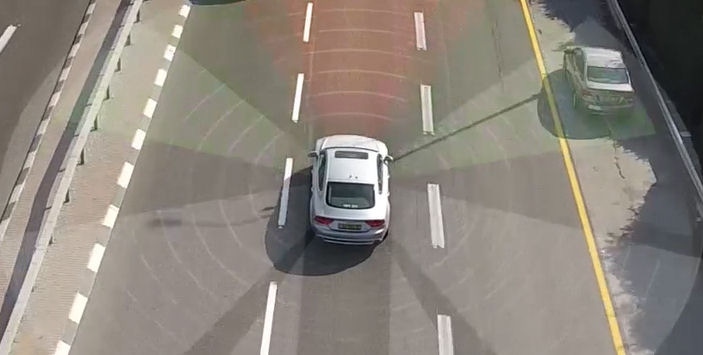O2 has announced it will switch-on its 5G network at Millbrook Proving Ground in Bedfordshire to fuel the testing of autonomous and connected vehicles.
April 12, 2019

O2 has announced it will switch-on its 5G network at Millbrook Proving Ground in Bedfordshire to fuel the testing of autonomous and connected vehicles.
As part of the Department of Digital, Culture, Media and Sport’s (DCMS) AutoAir project, O2 and consulting engineering firm Atkins join the project to accelerate the development of 5G-enabled intelligent transport systems. The test will be on of O2’s first forays into the 5G world, with the rest of the network set to be turned on across 2019.
“5G will play a key role in how our country develops over the next few years,” said Brendan O’Reilly, O2’s CTO. “If implemented properly, 5G has the potential to drive economic growth, create jobs and enable a new host of technologies – including self-driving vehicles. That’s why we’re delighted to be supporting the trial activity at Millbrook, alongside ambitious partners who share our vision of building a truly Mobile Britain.”
With the UK recently crowned on of the worlds leading authorities on autonomous and connected vehicles in a recent report, a lot depends on the success of these projects to prove the hype. Future of Mobility Minister Jesse Norman has already promised autonomous vehicles will be on UK roads by 2021, so let’s hope this project is a success; no-one wants to see a politician with egg on their face.
“The AutoAir consortium is pleased to welcome O2 and Atkins the 2nd phase of the project”, said Paul Senior, CEO of Dense Air and Chief Strategy Officer of Airspan Networks, one of the founding members of the project.
“O2’s integration and commercialisation of the 5G network at Millbrook to support both public and private mobile use cases is a world first and will be a reference deployment for the UK mobile industry as it moves to support for 5G applications for Industry 4.0, large enterprise and Government.”
Using 2.3 GHz and 3.4 GHz spectrum, the test will aim to accelerate the adoption of connected and self-driving technology in the UK. Part of the test is aimed at improving road safety and helping traffic authorities to monitor and manage traffic flow. It also follows other trials to demonstrate seamless and efficient handoffs between different radio sites.
Earlier this year, McLaren, another partner in the consortium, lend one of its sports cars to the test. Driving around the track at 160 mph, the vehicle was able to receive and send data at 1 Gbps, while also sharing real-time UltraHD 4K video between a network of moving vehicles.
“This project will transform the way we design, maintain and operate on our future networks,” said Lizi Stewart, Managing Director, Transportation at Atkins. “Developing the first 5G neutral network in the UK will allow us to continue our drive for innovation and industry-changing initiatives for the transportation sector.”
While connected vehicles are certainly a prospect on the horizon, autonomous vehicles might be a distant dream. The technology might be progressing, but there is much more to such a revolutionary change in society than simply making a robot work. For O2, this will be of minor concern as the telcos strides towards the 5G finish line.
About the Author(s)
You May Also Like








.png?width=300&auto=webp&quality=80&disable=upscale)


_1.jpg?width=300&auto=webp&quality=80&disable=upscale)


.png?width=800&auto=webp&quality=80&disable=upscale)